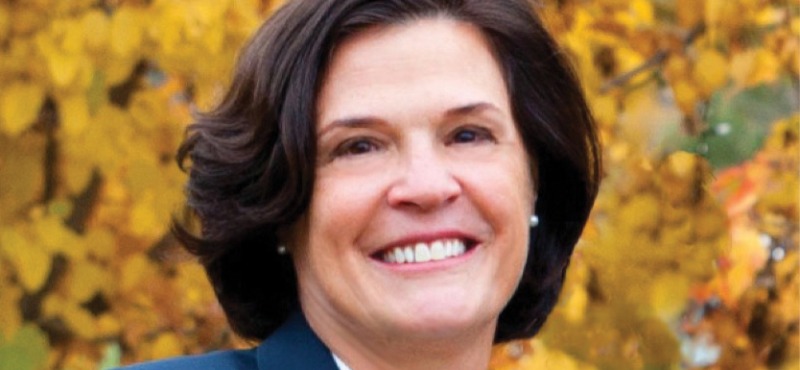The amendment to the Federal Labor Law published on May 1, 2019 establishes new provisions regarding conciliation prior to jurisdictional proceedings. Important new institutions will be introduced with the creation of Labor Courts of the Judicial Branch of the Federation and of the Federative Entities, as well as the creation of the Federal Center for Labor Conciliation and Registration. The following important novelties are highlighted:
CONCILIATORY FUNCTION
In the new model of labor justice, workers will have to resort to a conciliatory instance as a prerequisite to be able to exercise their legal actions in the labor Courts. This requirement will not be necessary in cases of discrimination in employment due to pregnancy, sex, race, ethnic or social condition; designation of beneficiaries; claim for social security benefits; claim for ownership of Collective Bargaining Agreement, as well as conflicts related to union statutes and their modifications, in which legal actions may be exercised without exhausting the conciliatory instance.
If the employer fails to appear at the conciliatory stage a fine of 50 to 100 times the UMA shall be imposed.
The conciliation shall be carried out by the conciliating officer, who will issue the summons to a conciliation hearing, assess the reasons for the parties' failure to attend the conciliation hearing, propose agreements and certify compliance with the agreements.
Agreements entered into with the Conciliation Centre shall have full legal effect and may only be challenged if they contain conditions that imply a waiver of rights.
The importance of Conciliation is central to this Reform, privileging dialogue as an alternative means of conflict resolution, and trying to avoid saturation of the labor courts. The new labor procedure should significantly reduce the time it takes to resolve lawsuits.
Conciliation has always been a fundamental part of labor procedural law, but the increase in the workload of the Conciliation and Arbitration Boards, the reduction of the budget and the lack of professionalization of civil servants, together with the economic interests of lawyers who seek to prolong trials in order to make them more expensive, led to significant delays in the provision of justice by the Conciliation and Arbitration Boards.
AUTHORITIES AND TRANSITION RULES
The reform provides for the creation of several new labour authorities.
Labour Courts
These courts replace the Local and Federal Conciliation and Arbitration Boards and must begin their functions in a maximum of three years in the Federative Entities and four years for the Federal Courts from the publication of the decree.
Federal Center for Labor Conciliation and Registration
The creation of the Federal Center for Labor Conciliation and Registration is ordered, which will have as its main attributions and functions the following:To carry out the conciliatory function as a new alternative mechanism for the settlement of labor disputes.
To register all collective bargaining agreements, internal labour regulations and trade union organizations throughout the country.
It will be a Decentralized Public Organism of the Federal Government, with domicile in Mexico City and have regional offices in the Federative Entities. The Center must have legal personality and its own patrimony, full technical, operative, budgetary, decision and management autonomy.
The Federal Center for Labor Conciliation and Registration shall initiate its functions in matters of registration of labor associations and collective bargaining agreements within a period of no more than two years from the entry into force of the amendment to the Act, taking into account the budgetary possibilities.
The Federal Center for Labor Conciliation and Registration must initiate its functions as a Federal conciliatory authority within a maximum of four years from the entry into force of the decree.
- The Conciliation Centers of the Federative Entities and Mexico City will have the following main functions:
- To perform the conciliatory function in conflicts between employers and workers.
- Put into practice the Professional Career Service to train and professionalize personnel that performs conciliatory functions.
Registry function and administration of collective agreements
As long as the Federal Center for Labor Conciliation and Registration does not become operational (maximum two years), the Secretariat of Labor and Social Welfare (STPS) and the Conciliation and Arbitration Boards will continue with their registration responsibilities of unions in accordance with the law in force until May 1, 2019.
Jurisdictional and conciliatory function
The Conciliation and Arbitration Boards will continue to hear labor lawsuits currently in process, as well as those generated from the entry into force of the decree until the Labor Courts come into operation.
While the labor courts and the local conciliation centers enter into function, the Labor Defense Attorney's Office retains the conciliatory functions temporarily.
Collective bargaining agreements must be reviewed at least once within the next four years in accordance with the procedure set out in the reform. Failure to review or comply with workers' knowledge and approval requirements will result in the termination of the collective bargaining agreement.
In order to consult the workers on the content of the Collective Agreements, the STPS must establish a verification protocol within three months of the decree coming into effect.
Coordinating Council for the Implementation of the Labor Reform
The Coordinating Council for the Implementation of the Labor Reform is created as a national body for consultation, planning and coordination that will have the objective of establishing national policy and coordination to implement the Labor Justice System at the federal and local levels under the terms of the law, with full respect for the attributions of the Federal and Local Powers.
This Council was established by the Secretary of Labor and a Council made up of representatives of the Ministry of the Interior, the Ministry of the Economy, the Attorney General's Office, CONAGO (Conferencia Nacional de Gobernadores), the National Commission of Superior Courts of Justice and the National Conference of Labor Secretaries.
Its main responsibilities include: the creation and facilities of the Federal Center for Labor Conciliation and Registration; the transfer and digitization of files; the creation and entry into office of labor courts; promoting the conclusion of matters that are pending and pending resolution; promoting professionalization in labor justice; as well as undertaking procedures to guarantee union democracy and authentic collective bargaining.
Labour reform will gradually take effect. Issues that affect administrative, individual and collective jurisdictional procedures will be subject to the functioning of the new conciliatory, registry and jurisdictional authorities, so the legal framework prior to the reform will continue to be applicable.
# # #
For more information, please contact any of MGGL's Partners:Héctor González L. (hglarrazolo@mggl.com.mx)
Santiago Marván U. (smarvan@mggl.com.mx)
Héctor González G. (hglezgraf@mggl.com.mx)
Nelson Guerrero R. (nelson.guerrero@mggl.com.mx)
Emilio I. Garzón J. (emilio.garzon@mggl.com.mx)
Cristian J. Lamas P. (cristian.lamas@mggl.com.mx)
Tel. +52 55 5340 6840 - info@mggl.com.mx - www.mggl.com.mx





























